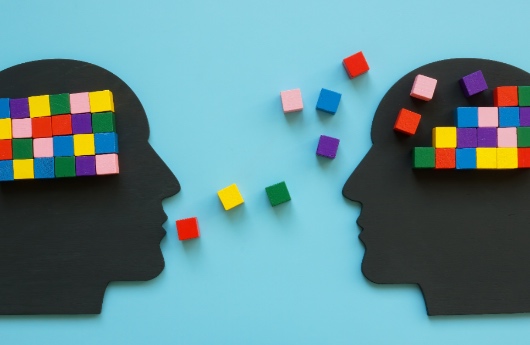The Wellness Factor: 3 Ways to Bring Self-Care to Work
The blurred lines between work and life have made self-care a workplace differentiator. First in a series.

It has become the new American morning routine: roll over, turn off the alarm on your phone, and immediately open your work email. So much so that 46% of people say they check work email before they even get out of bed.
But growing studies are confirming what we've long suspected: the amount of time we spend working is having an adverse effect on our health. Indeed, people who work long hours are 12% more likely to become heavy drinkers, according to the Finnish Institute of Occupational Health. A study from University College London, meanwhile, found people who work three or more hours longer than a normal seven-hour day had a 60% higher risk of heart-related problems, including heart attacks. "We are harming both company performance and individual well-being," said Stanford Graduate School of Business professor Jeffrey Pfeffer in an interview about his book, The Workplace Is Killing People and Nobody Cares.
While companies have focused on benefits that keep employees well via healthcare coverage, gym membership reimbursements, and healthy snacks in the break room, human resources experts say firms can-and must-go further. Here are ways you can take control of a constant cycle of work, for your health and your company's sake.
Aim for one task at a time.
A growing body of research shows you're actually more productive when you stop trying to do several things at once and focus on one task or activity at a time. Indeed, when people stopped multitasking, their productivity increased by 15%.
If this idea sounds daunting, one way to dip your toe in is by turning off your push notifications on your computer and phone. Studies show people look at their phones nearly 50 times a day, on average, and even a simple glance or calendar reminder popping up on your desktop can take you out of the moment. By doing this, you'll actually be able to finish the task at hand much quicker-usually in an hour or two-which then will give you more time back in your day.
Laugh, but don't laugh, at your company's effort.
With companies offering everything from weight-loss programs to weekly get-togethers to walk around the block, firms are no doubt trying to push wellness to the forefront. "Every health plan has moved away from calling itself health insurance; they are now ‘health and well-being' plans and are trying to look at the holistic picture of the members," says Heidi Leeds, global sector leader for health insurance at Korn Ferry.
While it's easy to dismiss such programs as more surface than substance (and research from the University of Illinois at Urbana-Champaign has said as much), some offerings are better than others. Health risk assessments, for example, don't really help employee wellness, because if someone is unhealthy and gets an assessment that tells them to, say, stop smoking and eat better, it's unlikely a piece of paper with such advice is going to sway their habits. But that walk around the block, as simplistic as it sounds, could help because it's an activity done with others. In a study from Indiana University, when people enrolled in fitness programs with a buddy, their drop-out rate was only 8%-compared to a 50% drop-out rate among people who went it alone. So instead of dismissing all the wellness options outright, pick through and assess which ones you (and perhaps a colleague) can realistically see yourself following.
Don't be the 2 a.m. bragger.
Many workplace cultures, whether inadvertently or on purpose, celebrate the number of hours worked. "If senior execs are answering emails at midnight that behavior is going to translate to everybody," says Gabrielle Bill, a Korn Ferry Advance career coach.
Instead of getting sucked into that culture-which actually can slash your productivity-try to follow the airline adage of putting on your oxygen mask before helping others. You're not going to be as productive if you're sleep-deprived and feeling guilty that you should be doing more. After all, "most things end up feeling more weighty than they usually wind up being," Bill says.
Next up: How burnout is affecting the largest generation in the workplace.







